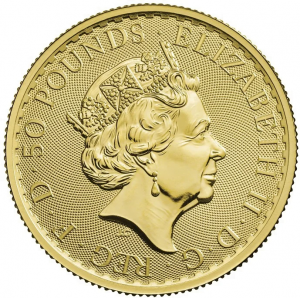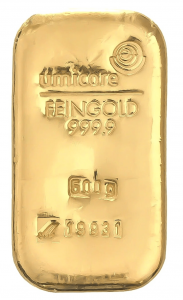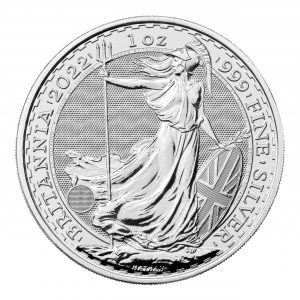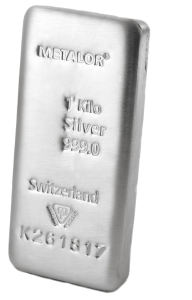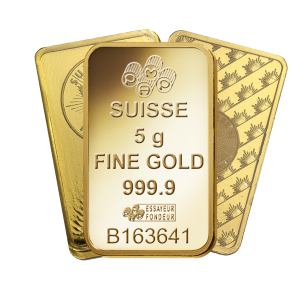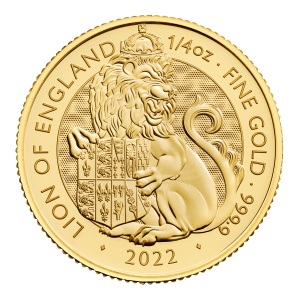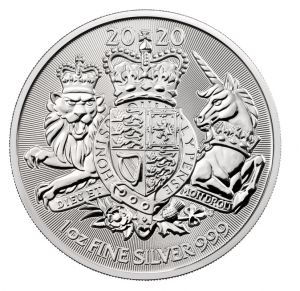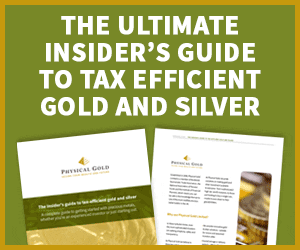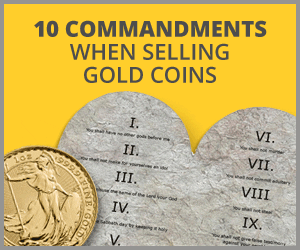Money in a savings account is returning next to nothing. As has been anticipated for many months, the Bank of England has finally announced its decision to cut interest rates from 0.5% to 0.25%, a record low and the first cut since 2009. The UK economy is said to be contracting at its fastest rate since the financial crisis and the interest rate cuts form part of a raft of measures to try and boost it.
That’s as may be, but it certainly doesn’t give savers much incentive to tie up their money in a savings account. You may understandably be pretty put out that you’ve had to suffer historically low interest rates for over three years, whilst rates on ISAs and fixed term bonds have also been slashed. With fixed-term bond rates having fallen to an all time low, you’ll have to lock your money away for five years or more, if you want to earn anything at all over inflation.
Want the best savings returns? Read our 7 step gold savings cheat sheet.
Firstly, gold!
Of course, we would offer this as an option you might say, but just look at the numbers. Gold is performing exceptionally well, with the year to date gold price having grown at 40.85% at time of writing.
It consistently demonstrates itself as a sound and safe alternative to cash, which has outperformed shares over the last few years. It will also help to ensure that your savings are not eroded through a combination of inflation and poor interest rates.
Although you won’t receive income from holding gold, the aim is to outstrip inflation through capital appreciation. One way of doing this can be through one-off purchases of either physical gold bars or gold coins. In contrast to the possible risks of electronic gold like mining shares funds – this is just solid gold as a means to proactively protect your wealth and beat bank account returns. What’s more, gold coins are tax free.
A savings account made of gold
At a time when many financial institutions have been withdrawing their ‘best buy’ savings accounts without anything to replace them, a gold savings account can offer a very attractive alternative.
You might think you’d need thousands of pounds of liquid assets to get started in investing in gold but that‘s far from the case. Buying gold is relevant to all of us, regardless of wealth, and can just replace the amount you regularly save in the bank. There are regular gold savings options, which start at £250 per month, with no maximum. This enables you to drip feed funds on a regular basis to build up your nest egg steadily. If the scheme purchases UK gold coins, then any appreciation is tax free, making it comparable to an ISA.
And thirdly, how about a SIPP?
A well managed SIPP has the potential to outperform cash investments, but it doesn’t need to leave the safety of cash behind entirely. Cash can still be part of your portfolio and the proportions adjusted in line with your risk profile as your circumstances change, such as approaching retirement, for example. Of course, you can also hold gold bullion as part of a SIPP, which can be a worthwhile option to consider, for those wishing to add balance to their pension.
Or consider all three…
As an overall recommendation, we would always emphasise that expert advice can help you to better structure your investments and provide a balanced portfolio rather than relying on standard cash ISAs or default bank portfolios. Professional advice can be expensive but if it comes up with some recommendations that bring you greater returns on your cash, you may find it more than pays for itself. Depending on your particular situation, the best solution may well be to consider two or three of the options discussed, providing further diversification.
So don’t despair with record low interest rates and assume the only option is to squirrel your cash away in a savings account. There are other opportunities out there and some of those are golden…
Throughout history, gold ownership has been perceived as an elitist privilege for those with huge wealth.
It’s been depicted in films as huge 400oz bars worth hundreds of thousands of pounds and its association with rich sheikhs, kings and central banks makes it seem out of reach for us regular people. But actually, gold and silver can be bought in very modest quantities and can provide the same stability and wealth protection for you and I, as it does for the rich.
Who’s buying it now?
The past decade has experienced a huge evolution, as we live in an ever-increasing globalised economy. And whilst this has presented many opportunities, it also poses new risks.
In a bid to protect and balance, institutions such as hedge funds, pension funds and wealth managers are now joining banks, in adding gold and silver to their holdings. 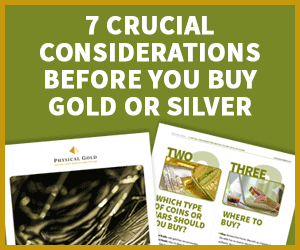
We’re seeing record numbers of individuals adding precious metals to their holdings, as global threats affect us all, and everyone is entitled to protect their wealth. We all have other insurances such as car and home protection, so why not also have portfolio insurance in the shape of gold and silver? Gold isn’t just for the super wealthy.
How accessible are gold and silver?
It’s incredibly easy to purchase precious metals. There are now a large number of companies selling gold and silver in various shapes and forms. Research is readily available at the tap of a button, to enable informed decision making. Gold’s rapid acquisition amongst the masses, means there’s also very strong selling opportunities. Certainly, if you select a reputable dealer, they’ll be able to provide guidance, purchase gold and silver for you at competitive rates and buy it back from you in the future.
How much wealth do I need to get started?
Despite the elitist image projected in films, precious metals can also be bought in the form of coins and small bars. Most dealers will help if you just want to start with one small coin, so you certainly don’t need to invest everything you have. We even provide a Monthly Saver
account, where you can gradually accumulate gold or silver coins on a regular basis.
Conclusion
Regardless of the size of your overall assets, experts suggest between 5% and 20% should be in gold and silver to provide balance. In India, people have been saving with gold for years as a means of protecting against a weak currency. Only now are the UK starting to realise its merits and understand that we’re all entitled to balance and protection, regardless of our level of wealth.
With Euro 2016 underway we decided to combine two of our passions… gold and England playing football! Just what are the links between everything European Championship-related and precious metals? We set out to find the answers…
Like this infographic? You can use it on your own website!
About Physical Gold Ltd (PGL)
Can PGL offer me financial advice
No, we cannot provide you with actual financial advice. However, we can make you aware of the most tax efficient ways of buying physical gold and silver in the UK and share our market expertise – to guide you towards the best value purchase and most balanced portfolio. We recommend an Independent Financial Adviser (IFA) if you’d prefer to seek separate advice.
Are PGL regulated?
Commodities only become regulated by the Financial Conduct Authority (FCA) once they are securitised. Therefore buying physical gold or silver falls outside of the FCA. The tax rules affecting gold, including the VAT exemption, Capital Gains Tax, and qualification for UK pensions are governed by HMRC. PGL is a proud member of the British Numismatic Trade Association (BNTA), so are also obliged to operate within their strict rule of ethics.
Can I trust PGL?
Absolutely! We are a member of the BNTA, the leading trade association for gold coin dealers, the National Association for Pension Funds (NAPF), The Chartered Institute for Securities and Investment (CISI)and the Institute for Financial Planners (IFP).We are partners with around 15 leading UK pension providers and work with a whole network of IFAs, who have all carried out strict due diligence on us.See credentials page for more info
Where are your offices?
We are based in the city of London, at 63/66 Hatton Garden, London EC1N 8LE.
Can I come in to buy gold?
You’ll need to place any order and pay on our website first. Our default business model is to then send your order directly to with Free Insured Delivery. If you wish to pick up your purchase instead, please call us on 020 7060 9992 as soon as you’ve placed the order to arrange pickup.
Learn more about a commonly asked FAQ in our YouTube video – “How to sell gold for the most cash”
Buying Process
Do I need to provide you with identification?
We have joined the Government’s anti-money laundering scheme, which means we need to adhere to its ID requirements. If you purchase £5,000 or more in one transaction or make several purchases totalling over £10,000 in one year, then we will need two forms of ID. One needs to be a picture (passport/driving license), the other a recent proof of address (3mth or less utility/bank bill). We need either originals or certified copies. Photocopies can be certified by the following people; GP, Accountant, Civil Servant, Teacher, Solicitor, Notary, Employer or at a minimal charge – a post office worker. We also reserve the right to request ID for investments smaller than these amounts.
How can I pay?
We accept either bank transfers, credit or debit cards. Debit Card payments are limited up to the value of £30,000 per transaction and Credit Card £10,000. Multiple card transactions are accepted.
Bank Transfer can be used for any order size. We accept payment by Visa Debit, Visa Electron, Maestro and MasterCard Debit as well as all Visa and MasterCard Credit Cards.
See here for more info (including 3d secure payment)
Is there VAT to pay on my purchase?
There is currently no VAT to pay when purchasing investment gold in the UK. The official HMRC exemption applies to all gold or purity 22 karats or higher in the form of a coin or bar. With the VAT rate set to rise to 20%, this represents a great saving over silver and platinum which are taxable.
Do you charge any commission on the transaction?
We do not charge any commission or management fees. We make our money by buying gold and silver at wholesale prices and selling on to retail. There is, of course, a margin between where we buy and sell. To reflect this simple process, we pass on discounts to you according to how much you buy.
How do I sell my gold or silver?
You are always best to go back first to the place where you bought the precious metals. We offer a BUYBACK GUARANTEE with all the gold and silver we sell, meaning that we will always repurchase the metals at market rate. You will need to complete a metals sales form if you wish to sell coins or bars which we are storing for you. This is because when we store gold and silver on your behalf, you remain the legal owner, so your signature is required for us to move your allocation. See our sell metals page for more info and indicative prices
What paperwork will I receive?
You’ll receive an invoice itemising your purchase. You’ll also be sent a Storage Agreement providing legal ownership if you opt for one of our storage options.
Form of Investment
How do I know if to buy gold within a pension or with liquid cash?
There are advantages to both methods. The main advantage of investing outside of a pension is your ability to sell the gold and realise your profits whenever you need. With a pension, you can sell the gold at any point, but the proceeds will generally need to remain within the pension until retirement age. The huge benefit of pension gold is the discount of up to 45% you can receive through tax relief. Your decision will be based on personal circumstances and you may decide to seek guidance from an IFA. Many customers decide that variety is the best way to invest and put some gold into their pension and keep some liquid.
How can I save regularly with gold or silver?
If you like the idea of protecting yourself with precious metals but have little upfront cash to invest, then our Monthly Saver may be a good option. This is a simple way to save regularly from as little as £350/month, and you will gradually accumulate a holding of physical gold or silver coins. The other advantage is that you can benefit from averaging the cost of the gold or silver over time, and you don’t have to worry about making individual payments every month.
Is there a minimum investment?
We are happy to help you invest in just one gold coin or from £350/month with our Monthly Saver. Silver coins tend to have a minimum purchase amount of 25 coins.
Investments into a Self Invested Personal Pension (Sipp) will be subject to suitability issues. As a guide, a minimum of £10,000 is recommended to offset any costs associated with setting up a Sipp.
Can I put gold into any type of pension?
No. Only a Self Invested Personal Pension (Sipp) can house gold bullion. Company pensions, stakeholder and personal pensions can generally only include traditional paper assets. Sipps are designed to offer the flexibility of containing both standard assets, along with the qualifying alternatives such as gold and property.
Can I put gold coins or bars into my Sipp?
Only gold bars of minimum purity 995 parts gold per thousand qualifies for your pension. Gold coins to not qualify.
Can I put physical silver into my Sipp?
Silver does not qualify for your Sipp.
How do I open a Sipp if I haven’t got one already?
We have partnered up with a selection of Sipp providers who all specialise in enabling alternative assets into their pensions. They will answer any questions you have and facilitate the necessary paperwork.
Do I have to transfer my pension to include pension gold?
The choice is yours. You can leave your current pension where it is, and open a Sipp alongside this to house gold (and other assets). Alternatively, if you like the idea of all your pension assets under one roof, we can help you transfer your existing pension into a Sipp.
Types of gold and silver
How do I know the precious metals you sell me are genuine?
Always buy from a reputable dealer, and avoid auction sites! All our coins and bars are checked by our numismatic experts and include a Certificate of Authenticity. As members of the British Numismatic Trade Association (BNTA), we have to adhere to a strict code of standards which includes sharing information relating to stolen or forged goods.
How is gold and silver priced?
All precious metals prices are based on the spot price for that metal in Sterling. This rate is only available to large banks trading in huge London Good Delivery Bars and does not include any brokerage fees, transportation, storage or insurance. Smaller bars and coins are always sold at a premium to the London spot price to reflect the additional costs of producing and testing smaller items. The value of coins may also be increased through their scarcity, design, historical value, collector’s value, and general market demand. Our premiums are extremely competitive and reduce as you buy larger bars or higher quantities of coins.
Is it better to buy bars or coins?
Each buyer’s circumstances are different and therefore the best type of gold or silver to buy will vary from person to person. Our consultants are experienced at helping select the optimum combination to maximise returns and suit your requirements. We will consider factors such as possible bulk discounts, flexibility when selling, tax issues, liquidity, current premiums and reason for purchase (collection, investment, meltdown for jewellery).
Is it better to buy brand new coins or older coins?
Again, our consultants will help determine the best type of coin to suit your needs. Premiums and demand can fluctuate from coin to coin. Our market expertise will help you select the coins with the best value and potential. Generally speaking, brand new coins are cheaper as they don’t currently contain any rarity value. Older coins are worth their gold content and rarity so have the chance of increasing in value quicker and falling in value much less when the market moves.
Which coins are totally tax free to buy and sell?
All investment-grade gold, including bullion coins, are VAT exempt to buy. UK coins of the realm are also free of Capital Gains tax (tax on your profits when you sell an asset) as they are legal tender. Qualifying coins amongst others are Britannias, Sovereigns, Angels and the gold £5 and £2 coins, along with their fractional versions. Silver Britannias also benefit from being CGT free.
Storage/Delivery
When will I receive the metals?
Your metals are shipped to you within 1 week of funds clearing, but most often within 1-2 business days. We will always be upfront if a certain bar or coin will take longer to source.
Is it possible to pick up the gold or silver from your offices?
By far the safest and most secure method of receiving your metals is through our delivery service which is fully insured and recorded.
If you wish to pick up your purchase instead, please call us on 020 7060 9992 as soon as you’ve placed the order to arrange pickup. You’ll need to place any order and pay on our website first.
What are your shipping costs?
All our postage charges include full insurance and secure recorded delivery. Our charges for insured delivery of Gold within the UK are as follows;
| Monthly Saver | £FREE |
|---|---|
| For purchases between £1 – £10,000 | £FREE |
| Transactions between £10,001 – £50,000 | £FREE |
| Transactions between £50,001 – £100,000 | £FREE |
| Transactions between £100,001 – £200,000 | £FREE |
| Transactions between £200,001+ | £FREE |
See Storage/delivery page for further details
Can you ship gold and silver outside of the UK?
No, not at this present time.
Can you deliver to a business address?
Yes, we can deliver the gold to any address, provided there is someone to sign and receive it. Once the delivery has been signed for, it is no longer under PGL’s insurance or responsibility.
Where can you store my gold or silver?
We are able to offer storage with Loomis International in the UK. They are one of the world’s leading precious metals storage facilities with warehouses around the globe. They are a member of the British Security Industry Association (BSIA), and the London Bullion Market Association (LBMA). http://www.loomis-international.com/. See Storage/delivery page for further details
Is the stored gold and silver insured?
Absolutely. Your holding is fully covered through Lloyds of London.
What are your storage charges?
Charges are 1% per annum + VAT, paid upfront 6 months at a time for gold, and 1.5% for silver, based on mid-market values.
Is there a minimum storage value?
No, but there is a minimum storage charge (see below).
Is there a minimum storage charge?
The minimum semi-annual charge for gold is £25+VAT and £37.50+VAT for silver.
What happens to my stored metals if PGL ceases operating for any reason?
The gold and silver are legally owned by yourself and you can choose to collect the metals if desired. You will be provided with a legal Storage Agreement stating the amount and type of coins/bars stored, and the location it is kept. We operate on a fully allocated and segregated manner, meaning you have actual coins or bars in your name which don’t sit on Physical Gold Ltd’s balance sheet or that of the storage facilities. So your gold and silver are fully protected and counterparty risk-FREE.
Gold Market
Is physical gold a risky asset?
All investments involve a degree of risk, and gold is no exception. Just like stocks and shares, the value of gold can go down as well as up. We would never suggest borrowing money to invest in physical gold or putting all your money into gold. The key with any portfolio is having a mix of assets. The great news with physical gold is that it provides a unique portfolio balance as it is not correlated with other assets. This benefit has become very apparent recently when the value of shares, bonds, cash and property have all fallen at the same time, while gold prices have continued to rise. While gold still has a degree of market risk, buying physical gold cancels out any counterparty risk. This means that unlike paper assets, the value of gold can never fall to zero if a Government, company or person goes bankrupt. As a globally recognised and traded commodity, the liquidity risk of gold coins and bars (or difficulty in selling) is minimal.
Is it a good time to buy gold?
Clearly, in an ideal world, you buy an asset at its lowest price point and sell at its highest. Gold has returned an average of over 12% per year in the UK over the past decade. However, we feel the very factors which have pushed gold to its current level are stronger than ever. We have the backdrop of record Government debt around the world and warnings of a possible repeat banking crisis. As a finite, precious metal with little significant supply due over the next 7-10 years, market factors still very much favour its continued rise over the medium term. Gold investment should always be viewed as a medium to long-term asset to maximise possible returns.
Are ETFs a better way to invest in gold than buying coins or bars?
Electronic Traded Funds will track the spot price of gold and can be useful for speculation. However, you are never actually purchasing the bullion, and your shares can never be redeemed for physical gold. There are other risks involved with ETFs that include lack of transparency and accountability. Several recent press articles have highlighted that for the number of shares issued through gold ETFs, there is not enough bullion to back them up – leaving a huge liquidity issue if many investors wished to cash in at the same time. This reason, combined with their complicated risk disclosures, means your assets are at risk when you need them most and this would undermine the very reason for owning gold as a crisis hedge in the first place. Owning physical gold bars or coins, even if stored by ourselves on your behalf, presents no counterparty risk whatsoever. This is because all the gold we store for you is fully allocated and segregated. Owning physical gold itself is undeniably the ultimate way of owning a safe haven asset.
Should I buy gold mining stocks or physical gold?
Both methods of gold exposure represent entirely different asset classes and risk/reward attributes, especially in times of economic turmoil. Whilst mining stocks can generate substantial returns, they do not outperform physical gold in times of financial crisis. Not only that, but the investor can be exposed to just a single mining company and their fortunes. If that company goes bankrupt, the entire value of the shares can be wiped out. Physical bullion can never fall to zero. In times of sharp market decline, mining stocks tend to become correlated to the broad equity markets and suffer accordingly.
2019 Tax Year End
With the tax year end upon us, now’s the time that many take a hard look at their finances and make investment decisions for the following year. But if you’re one of the savvy investors already owning physical gold, then you’ll know buying gold and silver aren’t affected by the tax deadline.
Tax year-end brings a fresh start
If your money is currently in an ISA or savings account, then the tax year end might have you rethinking your investments and considering gold (or silver).
If you’re one of the thousands of investors wanting to move your money around, to reduce your tax exposure and maximise your gains, this article will provide insight into some important tax considerations, which every investor should know about.
Want to learn more about gold’s tax efficiency? Download the Insiders Guide to tax-efficient gold
ISAs are limited tax-free investments
Many investors just think of ISAs as tax-free investments, when in reality, they’re limited tax-free investments – meaning there’s an upper limit to how much you can save. The ISA limit for 2019/2020 remains at £20,000 maximum, but you can’t roll over any unused portion to the next year, so you have to use it or lose it.
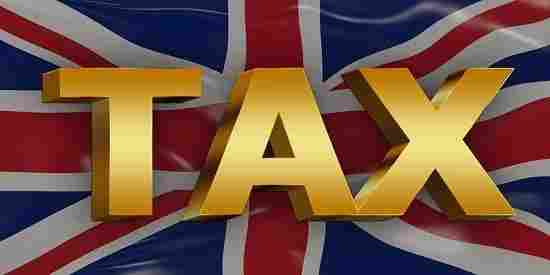
Keep TAX rates down with UK Gold
Regular savings accounts are taxed
If your money is in an old fashioned, regular savings account, you’ll be charged a tax on any interest it generates. This makes a savings account quite unappealing for those who’ve already maxed out their ISAs. Especially with the highest available rates being around 1.5% and the majority of interest rates currently yielding sub-1% even before tax!
Capital Gains Taxes on assets you sell
If you’re looking into selling an asset or Buy-to-Let property that you own, you’ll likely end up paying Capital Gains Tax on the profits of that sale. This is especially true for those who’ve already reached their CGT allowance for the year. Many forms of Gold, on the other hand, are actually CGT free.
The lifetime allowance could affect your pension
The lifetime allowance, which was previously reduced from £1.25 million to £1 million, 
UK Gold Coins have no Capital Gains Tax and no VAT
Physical gold has always been a worthy investment and gold investments make a great addition to any portfolio. Due to there being no upper limit on how much you can purchase in a year and certain forms of gold falling into the bracket for CGT and VAT free investments, it is looked on favourably by many investors. Currently, all bullion coins that are classed as legal tender in the UK which includes coins such as gold Sovereigns and gold Britannias, are CGT exempt. They are also VAT free providing the coins were minted after 1800 and classified as legal tender.
Coins to buy from Physical Gold
If you want to consider an investment that will appreciate tax-free, then take a look at our tax free-gold coins (including the 2019 Gold Sovereign and the Dragon Queen’s Beast). www.physicalgold.com even offers the opportunity to add gold to your Self Invested Personal Pension (SIPP) to achieve a balanced portfolio. Currently, the UK Government are willing to pay up to 45% towards the cost of your gold if you invest through a SIPP. This is applicable to all investment-grade gold bars or wafer that are professionally stored and have a purity of at least 99.5%.
Contact Physical Gold for 2019/2020 Financial Planning
Providing you’re looking for an investment that will help you diversify and protect your assets, whilst avoiding CGT and VAT, you can’t go wrong with Physical Gold. Call us without delay on 020 7060 9992 to speak to us or complete our contact form. We can provide guidance on how gold can comfortably fit into a wider investment portfolio for the financial year ahead.
Image Sources: Geralt
Considerations Before You Buy Gold
-
Should you buy physical, electronic or paper gold?
This very much depends on your own personal, financial objectives and your own desired level of risk and returns. Each option comes with its own level of risk, some higher than others. Read about the Risk Pyramid below, where the highest risk options sit at the top, with the lower risk gold options at the bottom of the risk pyramid.
Derivatives (CFD, futures, spread betting) These suit short-term speculation but they can be very complicated and very high risk. These sit at the top of the risk pyramid, as they are considered to be the highest risk.
Mining Co shares – These have the potential for higher returns if the mining company does well. Though they very high counterparty risk and any returns on the investment may take years
Precious metals fund – Well regulated and generally invested into a mix of mining shares. Annual management charges do apply and these funds tend to be mid-risk on the pyramid, as there’s no investment into physical metals
Fully Allocated ETFs – Slightly lower risk are ETFs. These are cheap, fast and easy to buy and sell, but they do come with counterparty risk. It’s possible to leverage ETFs, but then the risks become higher. Because there’s no actual gold, you cannot take delivery of these plus annual management charges will apply.
Physical coins and bars – These are the lowest risks on the pyramid because you buy and receive your own physical gold. There’s no counterparty risk involved, as they’re solid, tangible assets, which you personally and fully own. You can store your gold at home and it can also be TAX-FREE if you purchase UK gold coins. Depending on which type of gold you buy, the costs can vary, but you can take delivery of any type of gold.
For more information on this please visit our page ‘Physical Gold versus Paper Gold.
-
Which type of physical coins or bars should you buy?
Within a UK pension fund, only gold bars are permissible.
If you buy with non-pension funds, then almost always UK legal tender coins will provide the best option. Their advantages are;
- Tax efficiency; Legal tender coins have no Capital Gains Tax to pay if you earn a profit. Bars and foreign coins are taxable.
- Liquidity; Gold is easy to buy and sell due to its desirability and track record. Don’t buy obscure precious metals, as your sale price will reflect their limited appeal.
- Divisibility; Owning one huge bar may appeal to your ego but it means that you have to sell all, or none, of your holding. Opting for coins means you have the flexibility to sell as little or much as you like when you like.
- Value; You can benefit from economies of scale without compromising on your divisibility. When the time comes for you to sell, UK legal tender coins can fetch amongst some of the best prices in the market.
-
Where should you buy from?
- A Jeweller; This may be convenient for you to get to & pick up from, but they usually have a very limited supply of coins or bars. There should be no paperwork involved but they will pay you a vastly lower price when you wish to sell back to them.
- eBay; You can browse from home and you may pick up a bargain if the seller has no reserve. This is a very high-risk option as the coins or bars may not be authentic and there’s no paperwork or recourse.
- Auction; You may find some auctions have decent quantities, but these are few and far between. It’s quite a time consuming to attend an auction and can be more expensive, in the end, than you anticipate. There is also a high risk of buying illiquid gold, especially if you’re not experienced in this area.
- Gold Dealer; More choice and higher quantities are available through a reputable dealer. They can provide expertise and guidance if required. And because they regularly buy and sell, dealers are in a position to offer good prices and should also offer a buyback guarantee. You should always receive certificates of authenticity, & the correct paperwork, to ensure you are in the best position to sell when the time comes.
Do your research when selecting a Dealer as not all are equal. Ensure they are members of The British Numismatic Trade Association (BNTA), do your research and read the customer reviews.
-
How do you know it’s real and of high quality?
- Buy from a reliable source
- Obtain a certificate of authenticity
- Only buy from BNTA members who must adhere to a code of ethics and standards
- Otherwise, have it tested
-
Is the timing right?
Gold is still 30% lower than its peak so offers value and experts are predicting a massive dollar crash is imminent!
The Global economic outlook is bleak, suggesting mainstream markets may suffer and gold thrive.
Terrorism and political turmoil is continuing, which generally affects the price of gold, as investors turn to the yellow metal as a safe haven.
Gold is a medium to long term investment, so exact timing isn’t crucial
You can cost average your buying, with a Monthly Saver account
-
Where can you keep it?
Hide it at home, in a safe, under the bed or in some cleverly disguised secret storage; like a clock, or plug socket. But do ensure your home insurers will cover the value of your gold.
Keep it at your bank in a deposit box. But if you haven’t already got one, they’re extremely difficult to get these days as many facilities are closing down.
In a 3rd party safe deposit facility. This may cost around £150/year but you will be able to access it 24/7.
Use your gold dealer’s professional vaulting facility. This is the best option for peace of mind as it will be fully insured and kept in pristine condition. However, you can’t touch it (and fondly run it through your fingers)!
-
How will you sell it?
To obtain the highest possible price for yourself, you can sell your coins one at a time to collectors, as and when there is a demand for them. But this may take time, so you’ll need to be patient.
You can sell to a jeweller for ease, but you might not receive the best value, as they are likely to melt down the gold.
Sell on eBay to potentially secure a very high price. But beware of additional Paypal charges and unscrupulous buyers. Don’t forget your reserve price!
Sell back to your dealer for an optimum mix of convenience, instant liquidity and the best price. You should ask if they offer a Buyback Guarantee when you originally purchase from them.
Investments in gold
Investments in gold are closely linked to the economy (usually inversely) and legislation changes brought about by the Budget. The Chancellor, George Osborne, delivered his Budget statement on Wednesday 16th March, following up his one hour-plus statement with the publication of a one-hundred and forty-eight page document. The Budget is not noted for its direct references to precious metals and this document was no exception. But what is always of interest, especially to those of us who hold gold and silver, is the big impact his announcements can have on our other assets, especially stocks and shares…
Since the Budget announcement, precious metals continue largely unchanged, reflecting the solid position of gold and silver as a balance to any portfolio.
Related – does your portfolio need gold?
This budget speech was no exception to previous Budgets. In 2014, a total of £3bn was wiped off the value of insurers, after a drastic change to annuity purchases. Partnership Assurance lost 55% of its value in a single day, whilst Just Retirement fell 42%.
This year the impact was less drastic, yet they still reflected the power of a speech made by one man; eroding value from stocks and shares that many of us hold in our pensions and ISAs. The Chancellors surprise adoption of the so-called sugar tax was bad news for many large companies. In particular, AG Barr and Britvic (perceived as solid shares held in many pensions and popular funds), were down 2.4% and 1.3%.
Related – strong gold prices for 2016.
In general terms, the Chancellor warned of a rocky road ahead. UK growth for this year was pegged at 2% – lower than some had predicted in the build up to the announcement. And Britains potential exit from the EU was a main theme of the speech, with the Chancellor highlighting that a Brexit could usher in a prolonged period of uncertainty.
The EU referendum on 23rd June looks likely to be a central battleground, around which stocks and shares will face added volatility. Whilst the equity markets face an uncertain year ahead, gold and silver have risen more than 15% this year alone.
Related – is property losing its shine?
If you currently have a portfolio with exposure to mainstream assets, including property, then it may be worth considering adding investments in gold and silver to add balance and prepare for that referendum and of course, future Budget announcements!

In the Spring budget of March 2014, the Chancellor George Osborne was praised for one of the most radical pension reforms in over 50 years. Previously you were forced to exchange your hard saved pension for a poor value income with an insurance company. But now, the public would be trusted to do whatever they like with their entire pension pot.
The new pension freedoms have been met with almost universal acclaim, though some sceptics believe the public may not resist squandering their entire pension on flash cars and holidays.
Spring Budget to squeeze the middle classes
Fast forward 2 years, and the next Spring budget is due on 16 March 2016. And whilst the UK

Rumours are mounting that the Spring Budget may deliver the biggest shock to pensions of all – but this time, not positively.
If Osborne continues to deliver budget surprises, then his most likely weapon of choice will be a reduction on the tax relief currently offered on UK pensions. The suggestion is that lower rate taxpayers won’t be affected as they’ll still receive a 20% top up on all their pension contributions. This equates to a £100 contribution being grossed up to £125.
Instead it’s the, already squeezed, middle classes who will be hit hardest. Currently, for every £100 a higher rate taxpayer puts into their pension, the Government tops up by 40% or £66. If the chancellor slashes this to a flat 20% for all, then the middle classes will lose £41 for every £100 they currently pay in.
There’s even the extreme option that the budget will cut ALL tax relief on pensions, and instead allow pensioners to take their whole pension-pot, tax free, after the age of 55. Currently they can take their entire pension, but only 25% is tax free. A basic rate tax payer saving £250/month for 25 years would lose out by £40,000 with no tax relief and a higher rate taxpayer £70,000.
How likely is this?
Unfortunately it’s very possible indeed. Firstly, the chancellor has previous form. He’s already attacked pension limits – reducing annual contribution caps to £40k and lifetime allowances to £1 million. So it certainly wouldn’t be the first time he astonishes the markets with his budget announcement.
He’s also under mounting pressure to eliminate the annual deficit (which recently rose to £8.2 billion), by the end of 2019. The UK national debt currently stands at over £1.6 trillion, but worryingly is growing at the rate of £5,170 per second.
With global markets under renewed pressure from ultra low oil prices and floundering Chinese stock markets, it may prove increasingly difficult to raise taxes. The next weapon in his armoury would be cuts to tax relief. The current pension relief costs the Government £34 billion a year, so this would be incredibly effective in an overnight reduction in Government outgoings.
The only hope is that Mr Osborne’s ambitions of becoming prime minister may prevent him from upsetting the core Conservative voters – the middle classes. Any raid on their tax relief could be seen as a huge betrayal to Tory values and ruin any chances he has of taking the helm.
Alternative Tax Relief?
Naturally if you want to add gold into your pension then the relief you’ll receive on that purchase will reduce in line with the new budget. However, adding gold bullion is just as tax-efficient as buying shares or bonds. If you use funds already within your pension (or sell another asset), then you would have already received the current level of tax relief, so won’t miss out. Rules may differ in the US with a Gold IRA.
Another alternative is to purchase tax-free gold coins outside of your pension. These coins are both VAT exempt and Capital Gains Tax free. Although there’s no tax relief on the purchase, these do offer the same tax efficiency as an ISA, but without the restrictive annual limits of an ISA.
Plus you can sell your tax-free coins any time you wish, unlike pension assets which are ‘locked up’ until the age of 55.
One thing’s for sure, if pension tax relief is reduced in the budget, many savers will start looking at alternative, safer havens for their cash, such as gold investment and property – pushing up the prices in both asset classes.
Tax-efficient precious metals
If you’re concerned about these possible changes and the continually evolving pension rules, then you should consider being tax efficient in other ways.
With the global economy and traditional equity markets taking a significant downturn in early 2016, precious metals could provide you with tax-efficient, market protection – but only if purchased correctly.
We are specialists in UK based, tax efficient precious metals. Our 4 main product categories are Silver, Tax free Gold, Pension Gold and Gold Savings – all of which have been specifically designed to maximise tax efficiency.
Are We Attracted to Gold More Than Other Metals?
What is it about gold that we seem to love so much? Besides it being a great long term investment strategy, humans seem to idolise and worship gold like no other metal. Maybe not as much as people such as Goldfinger, but there is definitely an obsession there! So are we attracted to gold more than other metals?
Widespread use of gold in our society
Perhaps we may not notice it, but gold surrounds us in our society. From our gold-plated jewellery to gold stars or gold medals for achievements, gold is something that we desire to achieve or show off.
We see gold everywhere, especially in the coins and money that we use
It would seem that we are attracted to gold on two fronts. Firstly, there is a scientific factor behind our attraction. We are naturally attracted to more colourful, shiny objects and items, and gold easily falls into this category.
While we have an attraction to items such as silver, gold is without a doubt the most colourful metal. All the other metals on the periodic table have a silvery or brown colour, and while silver is still attractive, gold stands out above the rest.
Interested in gold investment? Download the FREE Insiders Guide to gold investing here
Gold in the movies
The second front that causes us to be attracted heavily to gold is down to the associations that we have placed upon it. As can be seen in our infographic below, gold is featured heavily in the films that we watch and the awards that are presented to the actors featured in these films.
These awards, alongside ‘gold’ being attributed to coming in first place, and the way that many of these films are heavily centered around gold, have given gold a reputation of being associated with power, wealth and success.
And, being humans, we are naturally attracted towards feelings of power, wealth and success. It makes us feel valued and worth something, and humans generally like to do this through items; gold is the perfect item for doing this.
What other benefits does gold have?
But what other benefits does gold have that makes it more attractive to us over other metals? Chemically, gold is one of the most reliable metals in the world. It can’t age, rust or tarnish, meaning the quality and value of your gold is assured for centuries to come. It is also malleable, durable and rare.
Thanks to the associations we’ve placed on gold and the science behind this attraction, gold has a timeless appeal as well. This coincides with the fact that the value of gold has been steadily rising for hundreds of years. It also doesn’t look like this rise in value is going to stop either!
Gold is great as an investment strategy. And for building huge palaces!
Finally, there are the financial benefits that make gold so attractive, especially as an investment opportunity. Gold has no counterparty risk, meaning that it is not someone else’s liability. It is also easy to convert into cash, easily portable, and has a high-value density, meaning a small piece of gold is still worth a hell of a lot of money! And, gold can’t be printed, inflated or counterfeited, so its quality is assured.
Want to know more about how gold can benefit you?
Have you got an insatiable attraction to gold that you just need to satisfy? Or perhaps you want to know more about how gold can benefit you as a long term investment strategy, with options such as tax-free gold coins? To find out more, you can contact us today on 020 7060 9992.
Image credits: freeimages9.com and sirinat Inopas
Why we all Dream in Gold
Like this infographic? You can use it on your own website!
Copy the text below to embed this image on your site.
Chinese New Year – 3 reasons Chinas gold economy is still shining bright
The Chinese economy has been well publicised of late, after a tumultuous 2015 and with increased volatility marking the start of 2016 trading. All thoughts of the economy will be on hold in early February however, when Chinese New Year is celebrated, on Monday 8th.
This year is the Year of the Monkey and the Chinese will mark the celebration with the usual mixture of gifts, holiday, family reunions and public celebrations.
Gold plays a very traditional role in Chinese New Year and features in many families celebrations, in one way or another. You can join in the tradition of Chinese New Year yourself with our options for buying gold, whether for your own investment or as a gift.
 Gold gifts to close relations
Gold gifts to close relations
Gold is considered a symbol of wealth and prosperity within China, which means you can rarely go wrong with giving it as a gift on big occasions. Having said that, the Chinese consider gifts such as necklaces to be the symbol of an intimate relationship, so take care youre giving the right gift to the right person!
Chinese New Year red envelopes
Red envelopes are a symbol of Chinese New Year and, of course, they contain money! No gold included unfortunately (excluding the lettering, see below), but the envelopes usually contain crisp new monetary notes. Numerical amounts are important. The Chinese will never give an amount ending in 4 (which has connotations of death), but frequently give amounts ending in 8 or 9 (fortune and longevity).
Gold lettering
Red may be the colour of Chinese New Year (specifically, this year, its the Red Fire Monkey) but the red is traditionally emphasised via gold lettering. To complement the lettering, firecrackers and strips of red paper are decorated with gold symbols, which typically form spring couplets of four chinese characters, known as Hui Chun.
However, Chinas relationship with gold goes far beyond gift giving and decoration at New Year. The worlds second largest economy, by GDP, is intrinsically linked to gold around the world, in a variety of key ways.
China is the worlds 2nd largest gold buyer
2013 saw China become the largest, global purchaser of gold and experts predict that the Chinese appetite for gold is on the rise. However, India marginally wrestled the crown back from China in 2015 to regain its top spot. By 2017, its predicted that China will collectively be purchasing 1,350 tonnes of gold, up from the 2014 level of 1,132 tonnes, so its expected the top consumer crown may switch again.
China produces more of the worlds gold than any other nation
South Africa was, for many years, the worlds leading gold producer, but recently China and other countries have surpassed South Africa’s output. In 2014, China was the leading gold miner, extracting 450 tonnes of the global total of 2,860. Australia, in second place, produced 270 tonnes.
Download our 7 step cheat sheet to gold investment here
Relationship with GDP
As mentioned, China is the worlds second largest economy by GDP which, as an economic measure, can impact gold in a number of ways. Debt to GDP, for example, is a common measure of strength in an economy and, over time, the measure has been shown to impact the gold price.
As ever, gold is a safe haven for investors and a recommended option for balancing & securing your investments. In times of uncertainty, as more investors choose gold, the price has historically risen.
If you’d like to find out more or celebrate Chinese New Year by purchasing some gold, then you can download our free Guide to Investing in Gold and Silver, simply by clicking here. Or get in touch directly on 020 7060 9992.

